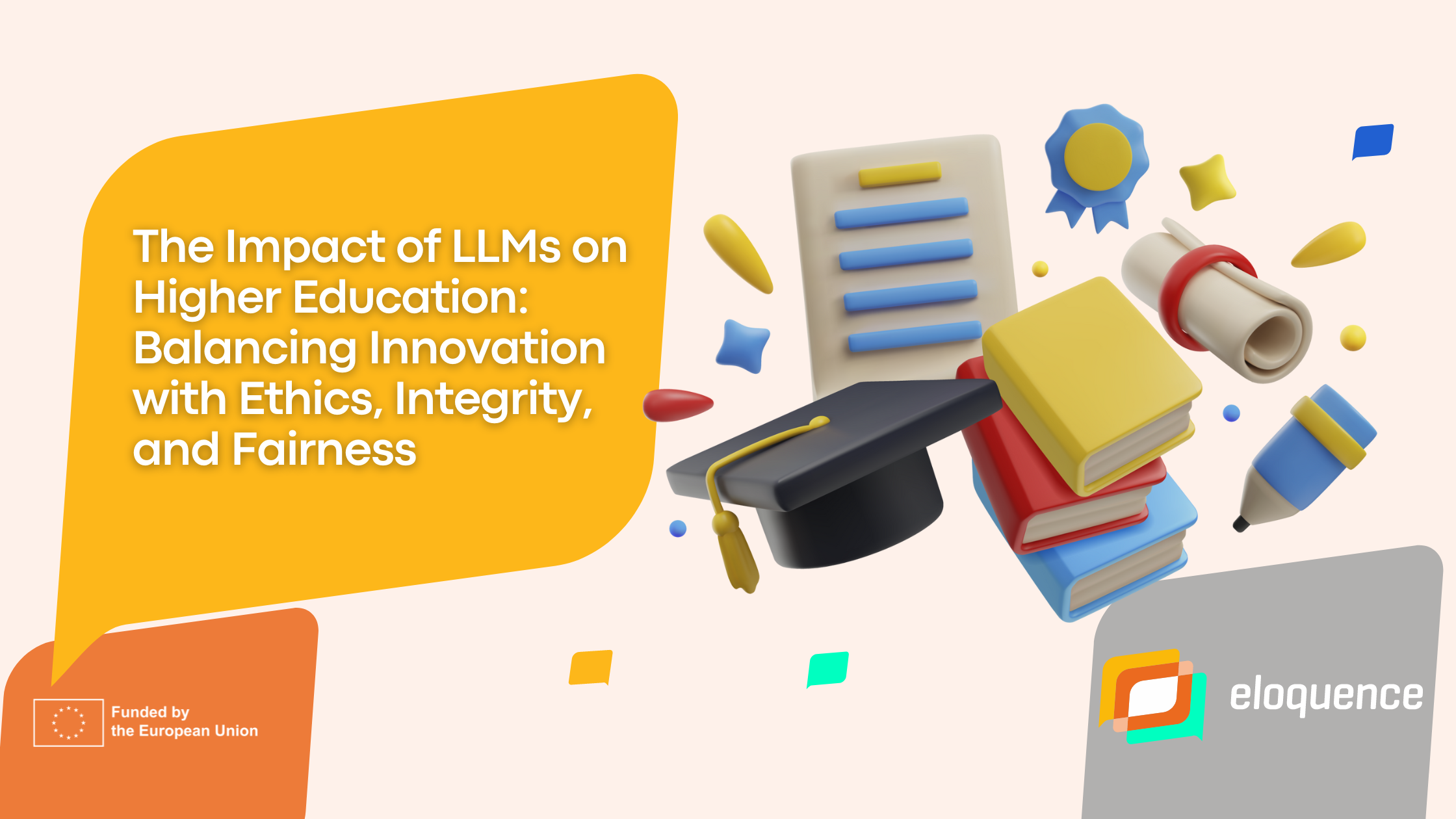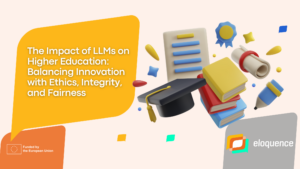The rise of artificial intelligence and large language models (LLMs) has created a large shift in various fields, including higher education. In the first episode of our podcast series, Navigating the Intersection of LLMs and Ethical Considerations, we sat down with Andreas Pamboris from GrantXpert, a partner in the ELOQUENCE project, to discuss how LLMs are transforming higher education while raising significant ethical challenges.
Key Ethical Challenges
One of the most significant concerns Andreas highlighted is bias in LLMs. Since these models are trained on vast datasets, any inherent biases in the data—whether related to gender, race, or socioeconomic status—can be reflected in their outputs. This could undermine fairness in assessments and affect student development. There’s also the risk of over-reliance on AI, where students might become dependent on AI-generated answers, potentially hampering critical thinking and academic integrity.
Balancing Innovation with Integrity
Andreas emphasized the importance of promoting the ethical use of LLMs. Higher education institutions must balance innovation with fairness, ensuring that LLMs don’t replace essential learning processes. To address issues like academic integrity and bias, institutions can:
- Develop clear guidelines on acceptable AI use in academic work.
- Promote AI literacy, ensuring students understand both the capabilities and limitations of these tools.
- Incorporate AI detection tools to monitor plagiarism or AI-generated content.
Reimagining Assessment Models
Nowadays, LLMs are challenging traditional assessment models. Take-home essays and problem sets may no longer be sufficient to assess a student’s understanding. Andreas suggested moving toward dynamic assessments, such as in-class exams, oral presentations, or project-based evaluations that focus on problem-solving rather than the outcome. This shift would encourage students to engage deeply with their work rather than rely on AI for answers.
Personalized Learning and Accessibility
LLMs have the potential to offer more equitable personalized learning opportunities by tailoring educational content to individual student needs. However, to maintain equity, educators must ensure that these systems cater to diverse learning styles and are accessible to all students, regardless of their socioeconomic background. This may involve creating lighter, more accessible versions of these tools that can be deployed on low-tech devices for students in under-resourced areas.
As we move forward, educators, students, and developers must collaborate to create AI systems that align with ethical standards and pedagogical goals. The key is to use LLMs as supplementary tools, not replacements, ensuring they enhance learning rather than compromise academic integrity.
If you are interested in learning more, check Andreas’s full interview in the first episode of the podcast at: https://www.youtube.com/watch?v=6J67RzgqmAU


